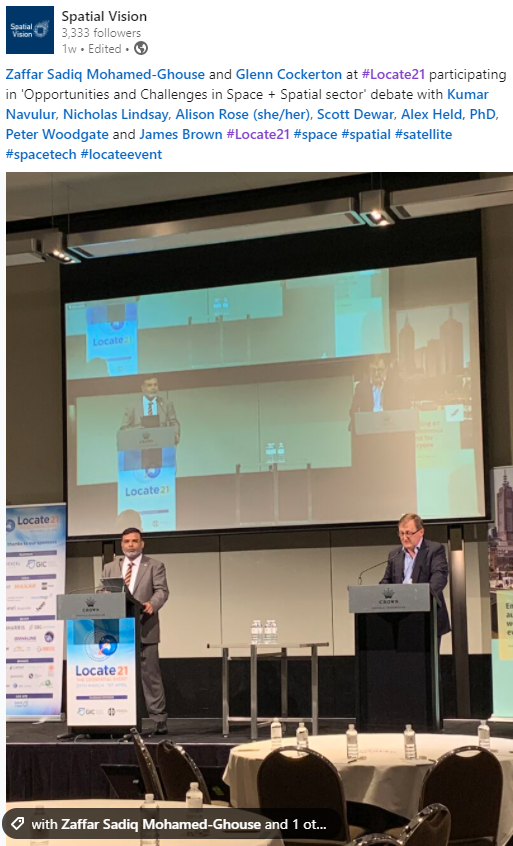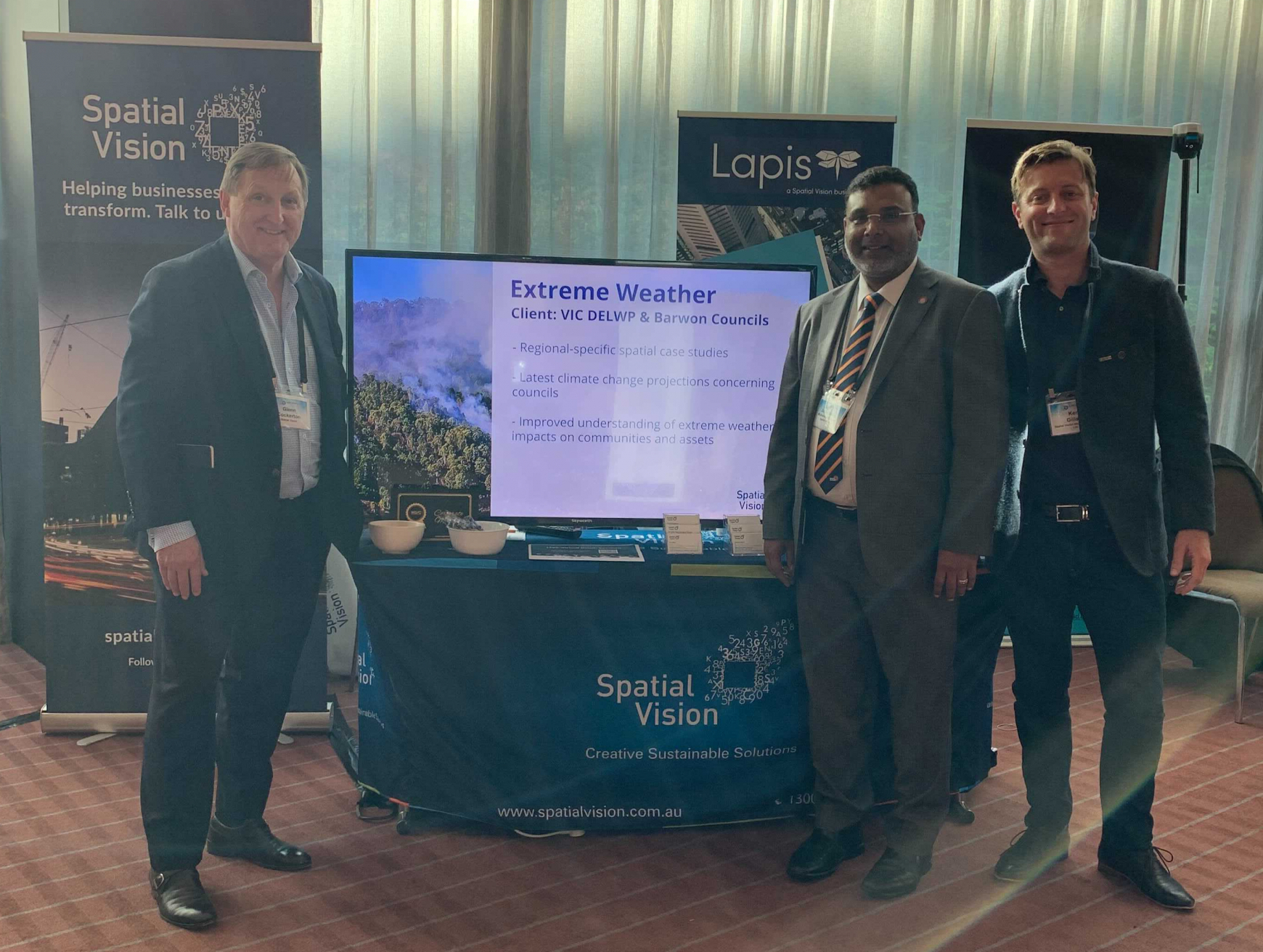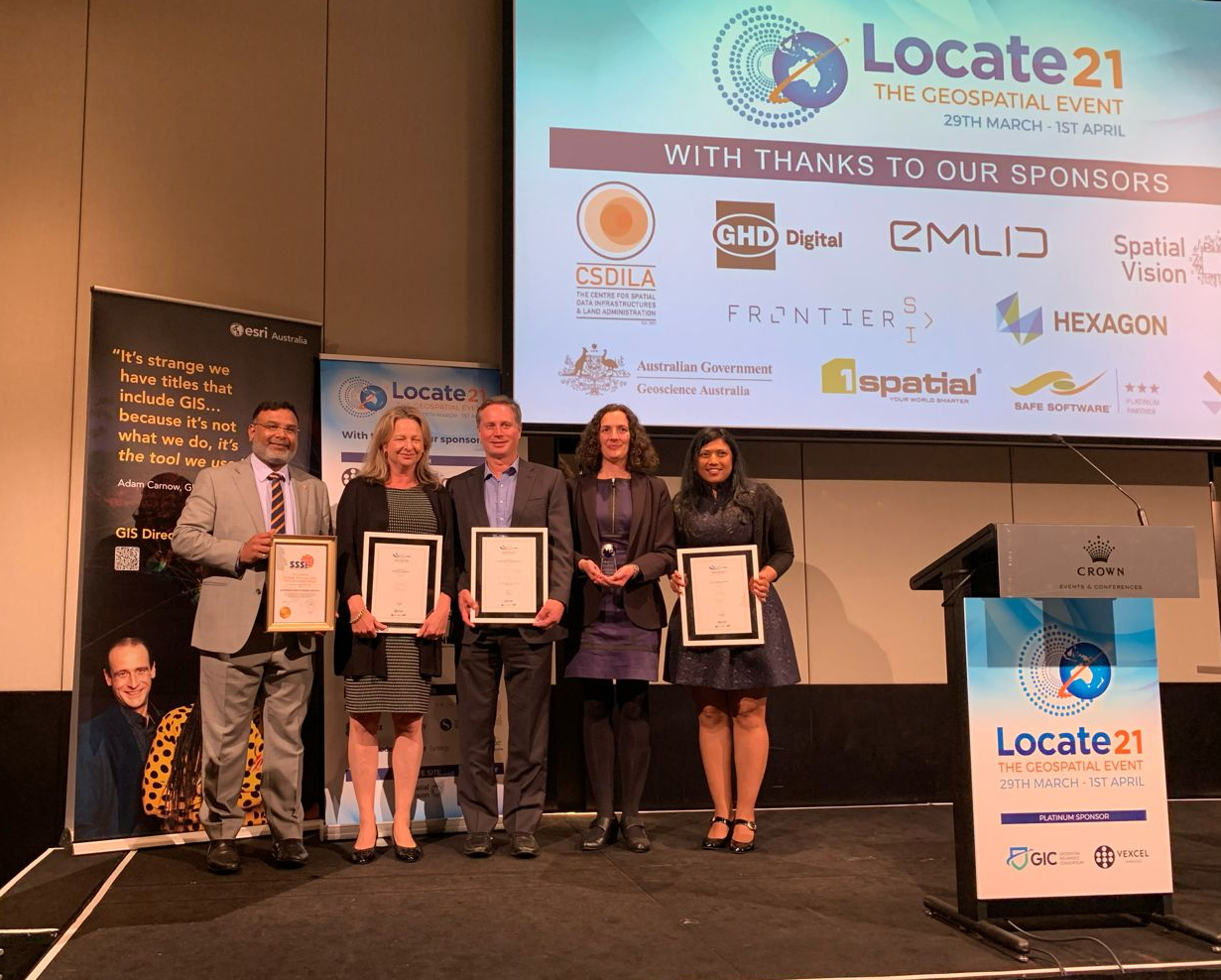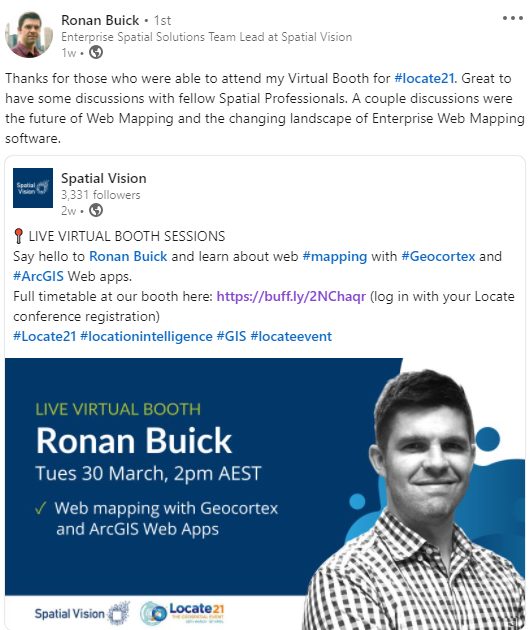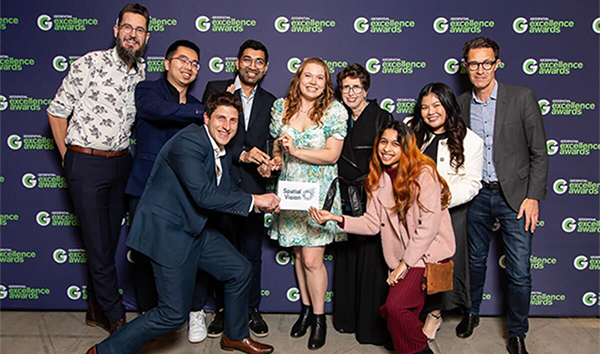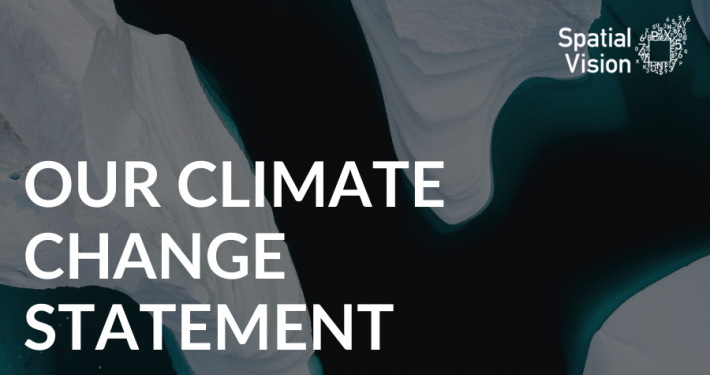Towards a Stronger Economy – Space, Spatial and More
Earlier this year, Spatial Vision participated in Australia’s premier spatial and surveying conference, Locate (Locate21). Delivered in a new hybrid format, the event was held across three live (physical) sites (Melbourne, Sydney and Canberra) with a number of virtually streamed sessions via an online conference platform.
This year’s event showcased some of the many ways in which geospatial and location technologies are influencing broader industries and the wider economy. A key focus was the role of geospatial in enabling our digital economy with the theme: “Convergence, Collaboration and Community – towards a stronger economy.”
“After such a long gap since our last national conference, Locate21 proved yet again its value in bringing public, private and academic sectors together to share ideas, celebrate the significant achievements of the last 24 months, and deliver on the conference’s objective of building the Australian economy.“
—Glenn Cockerton
Spatial Vision were involved in a number of activities across the program and event – see highlights below.
CONVERGENCE: ‘Space + Spatial’ Australia
Spatial Vision’s Managing Director Glenn Cockerton took part in the ‘Opportunities and Challenges in Space + Spatial sector’ discussion.. The discussion involved the convergence of key private, public, academic and industry bodies, with a focus on key investments in the space-spatial crossover, including Australia’s Space Strategy set to contribute $1.6 billion to the economy, and other intiatives such as Digital Earth Australia and accurate positioning through Geoscience Australia’s Satellite-Based Augmented System project.
COLLABORATION: Sustainable Development Goals
An ongoing conversation on industry collaboration for the Sustainable Development Goals (SDGs) was explored in more detail at the conference with a panel discussion featuring General Manager Operations Graeme Martin. Panelists brought together a number of tools, frameworks and examples adopted across environmental, spatial and surveying sciences that contribute to and support the globally recognised Goals. The information brought together is set to form the basis of a shared national position on the industry’s contribution to the SDG agenda, supporting future decision making and investment in the sector.
Spatial Vision’s Chief Technology Officer Ian Miller also presented our Digital Cadastral Modernisation adjustment system with support from Spatial Analyst Tom Hollands, as part of the session, ‘Adaptation, Modernisation: Towards The Future’. The presentation highlighted our approach to system design, demonstrating our emphasis on building, testing and proving methodologies prior to creating the innovative systems that support them.
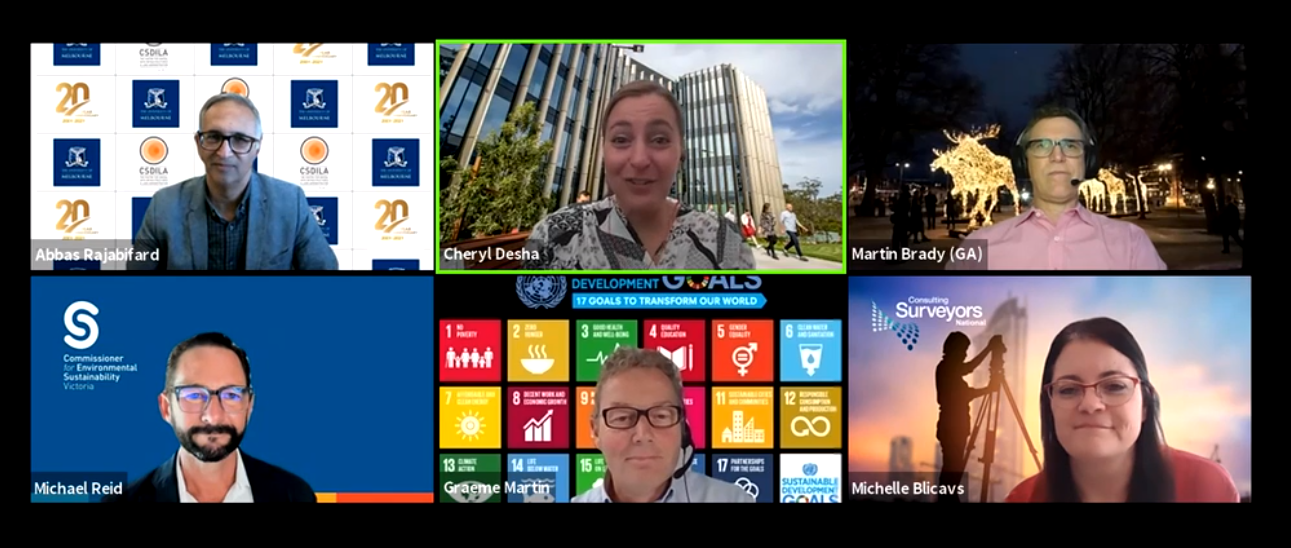
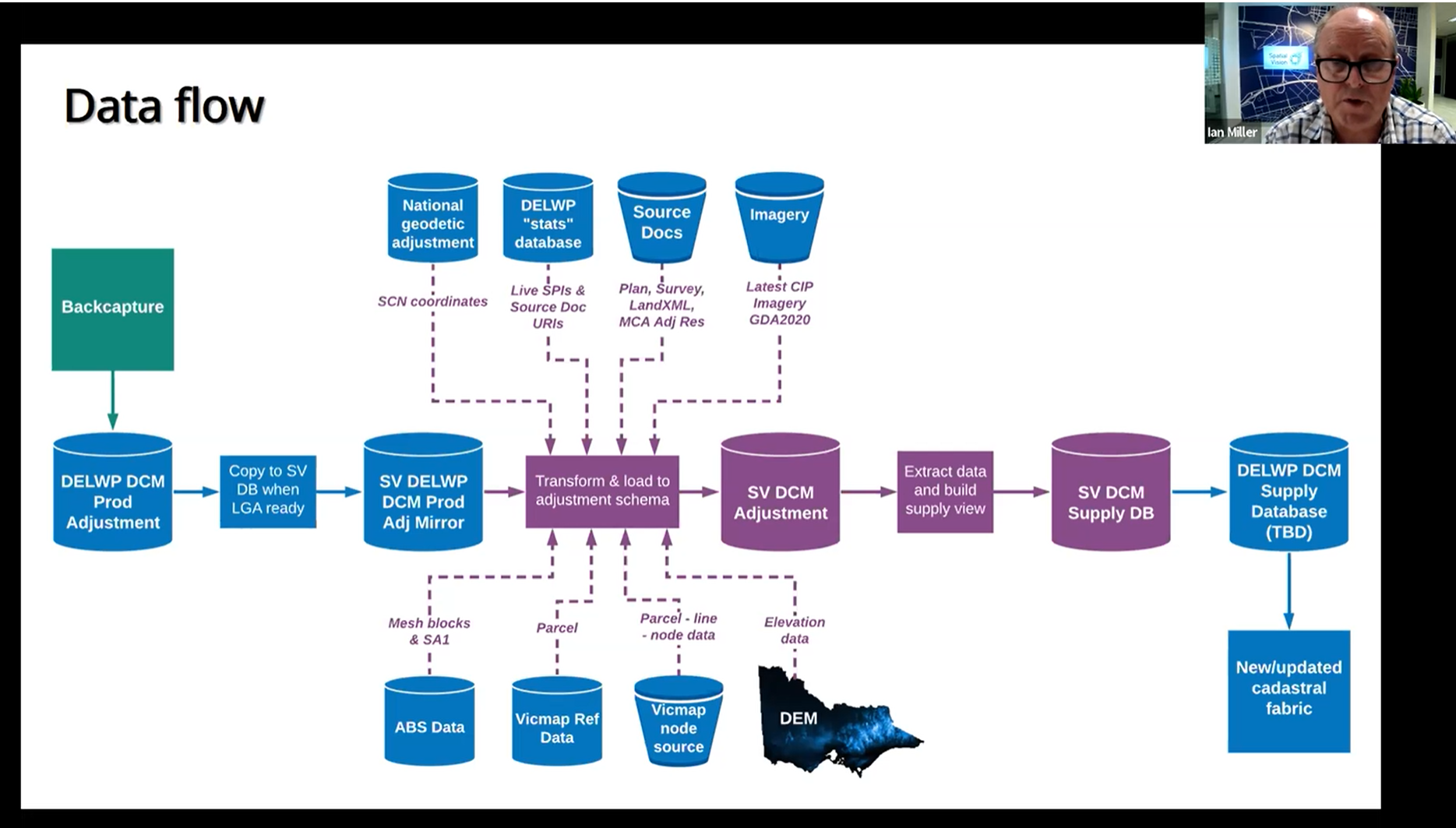
COMMUNITY: Celebrating Spatial and Surveying
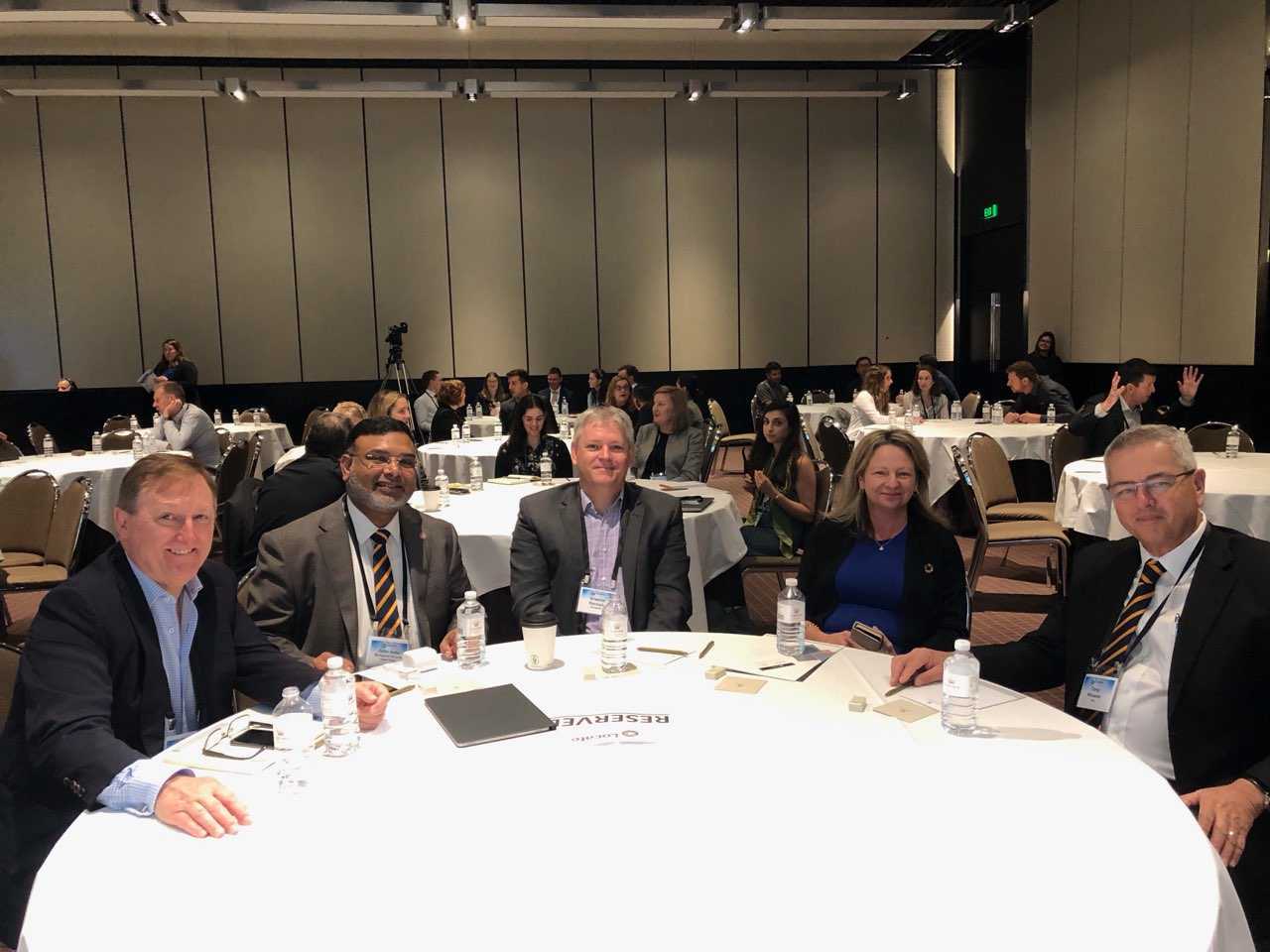 The four-day conference brought together ideas and solutions for the many challenges of today and tomorrow. At its core, however, was the engagement of and participation by the spatial and surveying community which many would agree contributed to the event’s success.
The four-day conference brought together ideas and solutions for the many challenges of today and tomorrow. At its core, however, was the engagement of and participation by the spatial and surveying community which many would agree contributed to the event’s success.
Spatial Vision staff enjoyed networking with industry at the Melbourne live site, and for the first time, through an online virtual booth. Across three days, staff at all levels of the organisation and some of the Lapis team held virtual booth sessions for delegates online showcasing a number of key projects and initiatives at Spatial Vision, from our Digital Cadastre Modernisation work to our award-winning spatial strategy for NSW DPIE.
Together, we celebrated innovation and excellence at the Asia-Pacific Spatial Excellence Awards (APSEA) Ceremony. Zaffar Sadiq Mohamed-Ghouse was formally recognised as an ‘Honorary Fellow’ of the Surveying and Spatial Sciences Institute (SSSI), an award given to individuals who have made a significant contribution to the Institute or the Surveying and Spatial professions. Spatial Vision congratulates Zaffar on this outstanding achievement.
With hybrid conferencing the ‘new norm’, Spatial Vision look to innovate and find new and interesting ways to engage with our community and the industries we support. Significantly, we hope to continue the important discussions we’ve had at Locate, and make tangible progress towards a more sustainable society, and a stronger economy.


